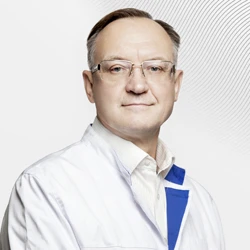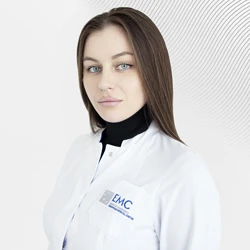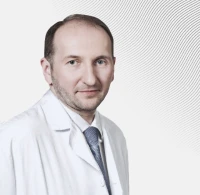Dizziness, impaired stability and coordination of movements
Dizziness may be accompanied by the following sensations:
-
Weakness, "nausea", a condition close to fainting, loss of consciousness.
-
Imbalance is a feeling of instability, in which there is a possibility of falling due to the inability to stand on your feet.
-
Vertigo is a vertigo in which there is a feeling of rotation of the body or surrounding objects.
During the conversation with the doctor, try to describe your feelings in as much detail as possible. This will greatly facilitate the specialist's task of identifying the possible cause of this condition and selecting treatment.
The causes of vertigo are diverse: from the most basic, such as motion sickness, to diseases of the inner ear. Sometimes dizziness is a symptom of a life-threatening condition such as stroke, as well as a sign of heart and blood vessel diseases.
The most common causes of dizziness are diseases of the inner ear: benign paroxysmal positional vertigo (BPPH), infections of the inner and middle ear (otitis media), Meniere's disease, "motion sickness" - motion sickness.
Benign paroxysmal positional vertigo (BPPH) is accompanied by a sensation of objects rotating around the patient or a sensation of the patient himself rotating ("everything is spinning in my head"). It is characterized by short-term attacks of a particular sensation, which can be provoked by certain head positions (tilting the head up or down), or occur only in a supine position or when turning in bed, trying to sit up. Usually, this type of vertigo is not threatening (only if it does not lead to falls) and responds well to adequately prescribed medication.
Special diagnosis of DPPG includes:
-
neurological examination, during which the doctor will pay attention to which movements of the eyes or head may cause dizziness. If necessary, the doctor will perform additional "vestibular tests" aimed at detecting "nystagmus" - involuntary movements of the eyeballs;
-
videonystagmography is a research method that also allows you to detect "nystagmus" with video camera sensors and analyze it in slow motion. The study is carried out in different positions of the head and body and allows us to find out whether the disease of the inner ear is the cause of dizziness;
-
magnetic resonance imaging of the brain (MRI), which allows you to exclude pathology of brain structures that can cause dizziness, for example, benign neoplasms such as neurinoma of the auditory nerve, etc.
Another common cause of dizziness is cerebral circulatory disorders, which lead to decreased blood flow and insufficient oxygen supply to the brain due to diseases and conditions such as:
-
Atherosclerosis of cerebral vessels (extracranial and intracranial).
-
Dehydration (dehydration).
-
Cardiac arrhythmias.
-
Orthostatic hypotension.
-
Acute cerebrovascular accident.
-
Transient ischemic attack (TIA).
Dizziness can also develop as a result of taking a certain group of medications, especially if their dosages are exceeded. A similar property may be possessed by:
-
Antidepressants.
-
Anticonvulsant drugs.
-
Antihypertensive drugs (lowering blood pressure).
-
Sedatives.
-
Tranquilizers.
Other common causes of dizziness include anemia, concussions, panic attacks, migraines, generalized anxiety disorder, hypoglycemia (lowering blood glucose levels).
If dizziness occurs, you should:
-
move more slowly (especially when moving from one position to another);
-
drink more fluids (a sufficient degree of hydration will improve well-being in many types of dizziness);
-
avoid excessive consumption of caffeine and nicotine (they can provoke a decrease in cerebral circulation).
You should make an appointment for a doctor's consultation if:
-
dizziness has occurred for the first time, or the usual dizziness has changed its characteristics (frequency of occurrence, duration of seizures);
-
had difficulty walking to the point of complete loss of balance and falling;
-
hearing decreased.
You should immediately consult a doctor if dizziness occurs as a result of a head injury or is accompanied by at least one of the following symptoms:
-
chest pain;
-
rapid heartbeat, "fluttering";
-
shortness of breath;
-
visual or speech impairments;
-
weakness in one or more limbs;
-
loss of consciousness lasting more than 2 minutes;
-
seizures.
Why the EMC
The first and only clinic in Russia, created in the image of the world's leading clinics
EMC is a multidisciplinary center offering patients a high level of medical services and a personalized approach
Worldwide recognition and awards
 Learn more
Learn more
Worldwide recognition and awards
 Certificates and licenses
Certificates and licenses
Make an appointment for a consultation
Specify your contacts and we will contact you to clarify the details
Reviews
and new products of the EMC


.webp)










